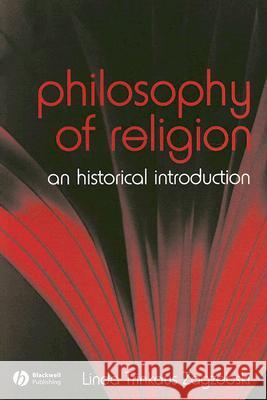The Philosophy of Religion: An Historical Introduction » książka
topmenu
The Philosophy of Religion: An Historical Introduction
ISBN-13: 9781405118729 / Angielski / Miękka / 2007 / 264 str.
An accessible and engaging introduction to the philosophy of religion.
- Written with verve and clarity by a leading philosopher and contributor to the field
- Places key issues and debates in the philosophy of religion in their historical contexts, highlighting the conditions that led to the development of the field
- Addresses the core topics, among them the the existence of God, the problem of evil, death and the afterlife, and the problem of religious diversity
- Rich with argument, yet never obtrusive
- Forms part of the Fundamentals of Philosophy series, in which renowned scholars explore the fundamental issues and core problems in the major sub-disciplines of philosophy











